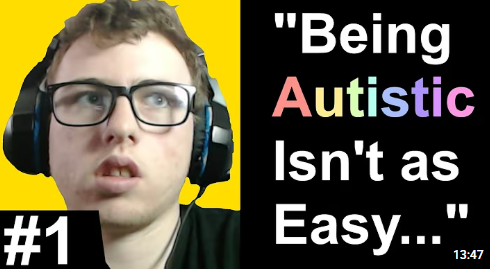Difficulty With Autism - Mental Podcast Episode 1
Autism is many things: identity, challenge, joy, disorientation, clarity, isolation, connection. In Mental Podcast Episode 1: “Difficulty with Autism”, host Paul Swann opens a window into what living with autism can feel like — the good, the difficult, and everything in between.

What the Episode Covers
In this first episode, Paul Swann shares personal reflections on the everyday realities of autistic life. The conversation is not sugar-coated; it gets into emotional, social, and sensory difficulties, and the weight of expectations—both internal and external.
Some of the topics touched upon:
The strain of social interactions: how trying to “fit in” or anticipate what others expect can be exhausting.
Sensory overload — how ordinary environments or situations (sound, light, crowded spaces) can become overwhelming.
Mental health intersections: anxiety, self-doubt, and the toll of masking (hiding autistic traits to seem “normal”).
Relationships and communication: navigating misunderstandings, needing more explicit cues, or struggling with indirect or implied social norms.
Self-acceptance: balance between wanting change (for ease, comfort) versus embracing neurodiversity and recognizing strengths.
Swann’s approach is conversational, intimate, and accessible. It feels like a friend talking rather than a lecture. He doesn’t simply describe “what is autism”; he dives into how it feels, with its tangibility.
Strengths of the Episode
-
Authenticity: There is a rawness in Swann’s voice that helps listeners connect. The difficulties are clearly real, messy, and complex — which is more helpful than polished platitudes.
-
Relatability: Even for non-autistic listeners, many of the dilemmas Swann describes (anxiety, needing rest, feeling misunderstood) will hit close to home. That can help build empathy.
-
Clarity: Swann is good at painting scenes — sensory overload at a loud gathering, feeling drained, etc. Those concrete examples make abstract struggles more understandable.
-
Hopeful threads: Despite the difficulties, the episode doesn’t lean only into despair. There's an undercurrent of wanting change, of exploring strategies, and of seeking understanding (from self and others).
What Could Have Been Stronger / Things to Consider
-
More structure or resources: For some listeners, especially those newly confronting autism (self, loved one, or via their work), it might help if there were actionable tips or signposting to supports (therapists, community groups, tools).
-
Voices beyond personal narrative: Adding guest voices (other autistic individuals, experts) could broaden perspective. One life story is powerful; multiple stories show diversity in experience.
-
Depth on coping/strategies: There is mention of challenges; more exploration of what works for Swann (or others) in handling those challenges might give listeners more practical takeaways.
Key Takeaways
Difficulty with Autism is real, multifaceted, and often invisible to others. Recognizing them is a first step toward empathy and support.
Masking and trying to conform are draining; acceptance (self or by others) plays a huge role in mental health and well-being.
Sensory, social, communication-related issues are intertwined: facing one alone (e.g. sensory overload) can ripple out to others (anxiety, social isolation).
Understanding comes both from sharing stories and creating spaces where talking about difficulty is okay — not just celebrating strengths, but acknowledging struggle.
Why It Matters
Episodes like this are important because autism is often celebrated when it’s “inspiring” or “extraordinary,” but less often shown when it’s painful, mundane, confusing. That “unsung” side matters — for autistic folks themselves, to feel seen, and for others, to understand more deeply what kind of support, compassion, or patience often would help.
Spotify Link - https://open.spotify.com/episode/2onIALR1jKgobTfKklznM8?si=mbLRJBOzSrmM9wDX4ejU9A
It helps shift cultural narratives from “fixing” or “overcoming” autism toward recognizing autism as part of human diversity, with its own set of challenges and contributions.





0 comments